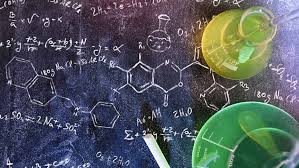Introduction
Science is the driving force behind human progress and the exploration of the world around us. It has revolutionized the way we understand the universe, from the smallest particles of matter to the vast expanse of space. Scientific discoveries and innovations have improved our lives in countless ways, from medicine to technology to environmental sustainability. This article will explore the importance of science, the methods scientists use to make discoveries, and how science continues to shape the future.
1. The Role of Science in Modern Society
Science plays a central role in nearly every aspect of modern life. It is the foundation of many advancements that have changed the world, such as the development of medical treatments, the creation of technology that powers our devices, and the understanding of environmental issues that influence policies around the globe.
Key Areas Where Science Impacts Our Lives:
- Healthcare: Advances in medical research have led to life-saving treatments, vaccines, and diagnostic tools.
- Technology: Scientific discoveries have given rise to innovations such as the internet, smartphones, and artificial intelligence.
- Environment: Science helps us understand the effects of climate change and develop solutions for sustainable living.
2. The Scientific Method: A Pathway to Discovery
At the core of science is the scientific method, a systematic approach to investigation that allows scientists to make observations, form hypotheses, conduct experiments, and draw conclusions. This method ensures that scientific discoveries are based on evidence and can be repeated and verified by others.
Steps of the Scientific Method:
- Observation: Scientists observe phenomena and ask questions about how the world works.
- Hypothesis: A tentative explanation or prediction is formulated based on the observation.
- Experimentation: Controlled experiments are conducted to test the hypothesis.
- Analysis: Data is collected and analyzed to determine whether the hypothesis is supported or refuted.
- Conclusion: Scientists draw conclusions based on the data and share their findings with the scientific community.
3. Breakthrough Discoveries and Their Impact
Throughout history, science has led to groundbreaking discoveries that have transformed society. These discoveries have not only expanded our knowledge but also improved our quality of life. Some of the most significant scientific breakthroughs include:
a. The Theory of Evolution
Proposed by Charles Darwin, the theory of evolution changed our understanding of biology. It explained how species change over time through natural selection, providing a foundation for modern biology and medicine.
b. The Laws of Motion and Gravity
Sir Isaac Newton’s laws of motion and gravity revolutionized physics and our understanding of the universe. These laws laid the groundwork for future studies in mechanics and space exploration.
c. The Discovery of DNA
The discovery of DNA by James Watson, Francis Crick, and Rosalind Franklin unlocked the secrets of genetics and has had profound implications in fields like medicine, forensics, and evolutionary biology.
d. The Development of Vaccines
The development of vaccines has saved millions of lives. From the smallpox vaccine to the COVID-19 vaccine, scientific research continues to protect populations from deadly diseases.
4. The Role of Technology in Scientific Advancement
Technology and science are intertwined, with each driving progress in the other. Innovations in technology allow scientists to explore new frontiers, while scientific discoveries often lead to new technologies that benefit society. Some examples of technology-driven scientific advancements include:
a. The Hubble Space Telescope
The Hubble Space Telescope has expanded our understanding of the universe, allowing scientists to explore distant galaxies and better understand the origins of the cosmos.
b. CRISPR Gene Editing
CRISPR technology has revolutionized genetics by allowing precise modifications of DNA, opening new possibilities for genetic therapies and treatments for diseases.
c. Artificial Intelligence (AI)
AI is transforming fields such as healthcare, where machine learning algorithms can predict patient outcomes, and in space exploration, where AI systems help analyze data from distant planets.
5. The Importance of Science Education
Science education is essential for developing a scientifically literate population. It fosters critical thinking, problem-solving skills, and an understanding of how the world works. Encouraging young people to pursue careers in science, technology, engineering, and mathematics (STEM) will ensure that future generations continue to drive innovation.
Benefits of Science Education:
- Fosters Curiosity: Encourages a sense of wonder and discovery in students.
- Promotes Critical Thinking: Teaches students to question, analyze, and evaluate information.
- Prepares for Future Careers: Opens doors to careers in STEM fields that are in high demand.
- Solves Global Challenges: Equips future generations with the tools to address complex issues like climate change, pandemics, and technological advancements.
6. The Future of Science and Innovation
The future of science holds endless possibilities. As technology continues to advance, new scientific frontiers will open, offering new opportunities for discovery. Areas such as quantum computing, space exploration, and renewable energy are poised to transform the world in the coming decades.
Emerging Fields of Science:
- Quantum Computing: Harnessing the power of quantum mechanics to create computers far more powerful than today’s systems.
- Space Exploration: With missions to Mars and beyond, space exploration will unlock new insights into the origins of the universe and the potential for life on other planets.
- Nanotechnology: Manipulating materials on a molecular level to create innovative materials and medical treatments.
Conclusion
Science is the backbone of modern society and continues to shape our world in profound ways. From the smallest atoms to the furthest galaxies, the pursuit of knowledge through science drives progress and innovation. By embracing the scientific method, supporting research, and investing in science education, we can continue to unlock new discoveries that improve lives and expand our understanding of the universe. The future of science holds exciting possibilities, and as we advance, the potential for new discoveries is limitless.

